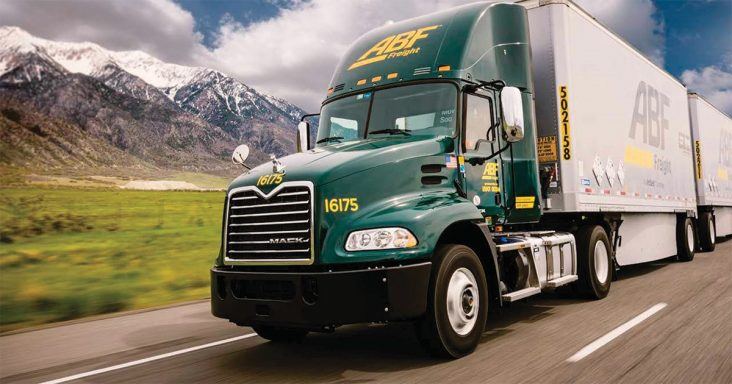ArcBest update shows lower revenue, softer demand in early 2023
by March 6, 2023 3:33 pm 1,871 views

A Monday (March 6) ArcBest update suggests that pricing benefits for shipping and logistics companies from the global supply chain pressure that emerged during COVID-19 shutdowns and other disruptions in 2020 and into 2021 have diminished.
The Fort Smith-based company said its ABF Freight division – the less-than-truckload (LTL) asset-based business – posted a 5.1% billed revenue per shipment decline in January compared with January 2022, and a 7% decline in February compared with February 2022. However, freight demand, even if at lower pricing, continues. Asset-based shipments per day were up 7.1% in January and up 9% in February.
The ArcBest logistics segment showed bigger declines in revenue and softening demand. Revenue per shipment was down 19.5% in December compared with December 2021, down 26.3% in January, and down 31% in February. Shipments per day were up 0.7% in December, up 2.6% in January, and up 1% in February.
“Year-over-year changes in revenue per shipment and purchased transportation expense as a percentage of revenue reflect continued market softness combined with business mix changes,” ArcBest noted in the Monday update.
Pricing has softened, according to the U.S. Bureau of Labor Statistics. The Producer Price Index for the broad Truck Transportation sector is down from a record 203.7 in May 2022 to 194.02 in January 2023. Still, the price index is at historically high numbers. The index ranged between 117 in January 2010 and 146 in early 2020, before falling to 140.6 as the COVID-19 pandemic emerged. The index would then spike to the May 2022 record.
Jack Atkins, an analyst with Little Rock-based Stephens Inc., and associate analyst Grant Smith said the declines in pricing and revenue are not unexpected, and they maintain an overweight rating on ArcBest shares (NASDAQ: ARCB).
“ARCB’s yield growth continued to decelerate month-over-month in February as dynamically priced freight becomes a larger piece of the overall freight mix with the Company pursuing transactional LTL volumes to keep its network balanced. … (W)e continue to believe the market is undervaluing ARCB’s highly strategic LTL assets. We reiterate our Overweight rating,” Atkins wrote in a note issued Monday after the ArcBest update.
Stephens has a $9.05 per share net income for ArcBest in 2023, which would be down from $11.67 per share net income in 2022 – a record revenue year for ArcBest. Full-year revenue was $5.324 billion, up 33.7% compared with 2021 revenue of $3.98 billion. Full-year net income was $298.209 million, up 39.6% compared with the $213.521 million in 2021.
Stephens is also maintaining its first-quarter earnings per share estimate for ArcBest.
“Net, this morning’s update implies that ARCB’s 1Q is tracking roughly in line with our $1.47 EPS forecast, but below consensus of $1.98,” Atkins noted.
While pricing and costs appear to be squeezing margins in some parts of the shipping and logistics sector, U.S. freight demand has ticked higher in recent months.
“Tonnage has increased nicely in the last couple of months,” American Trucking Associations’ Chief Economic Bob Costello said in the trade group’s Truck Tonnage Index posted Feb. 21. “I suspect that some of the gain is attributable to capacity coming out of the network, especially those carriers that primarily operate in the spot market and/or bought expensive used equipment in the last couple of years. This would push more freight to contract carriers, which dominate this index. It could also be that freight bottomed and is coming up a little too. So, the gain is likely a little higher demand and a little less supply. Despite the increases in December and January, tonnage is still off 1.4% from its recent high in September.”
ArcBest shares closed Monday at $101.72, down $2.20. During the past 52 weeks, the share price has ranged between $104.70 and $65.16.
